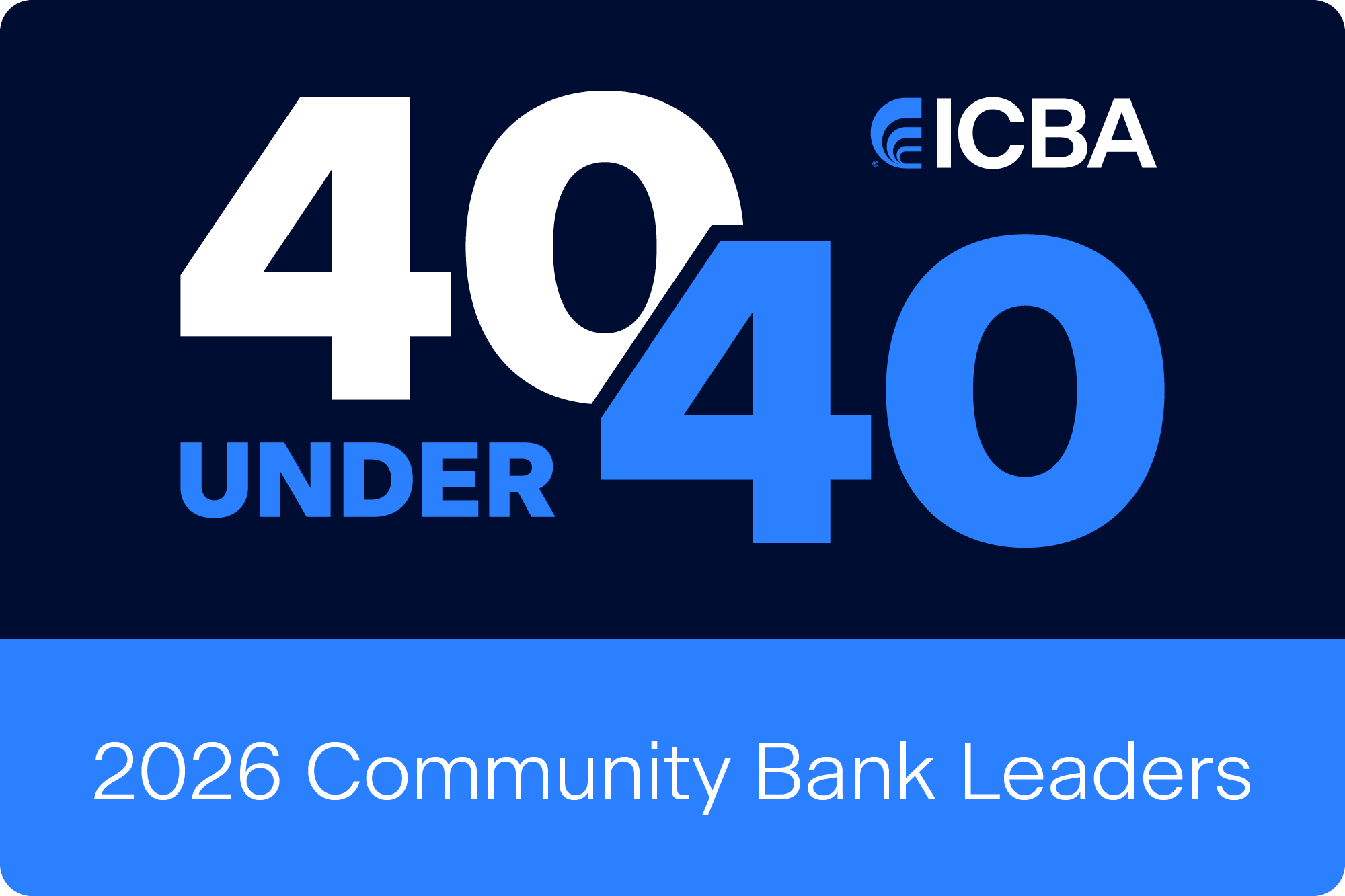As customer requirements evolve, a forward-thinking community bank board of directors is critical. Two community bankers explain how they set their boards up for success.
Build a Better Board-Succession Process
December 13, 2023 / By Elizabeth Judd
As customer requirements evolve, a forward-thinking community bank board of directors is critical. Two community bankers explain how they set their boards up for success.
At Lake Ridge Bank’s August board meeting, two directors, now retired from their day jobs, voluntarily gave up their seats. Such expectations had been set years ago: As part of the annual director self‑evaluation process, active employment is one of the $3 billion-asset community bank’s main criteria for serving on the board.
“When you’re no longer fulfilling all of the characteristics of an ideal director, maybe it’s a good time to part ways,” says Jim L. Tubbs, CEO of the Middleton, Wis., community bank. “We never want a directorship to feel like it’s a lifelong opportunity—or a life sentence. We want directors to truly be engaged and to be in the right chairs for the right reasons.”

Such amicable partings are not necessarily the norm, which highlights the importance of a comprehensive process for board succession.
Often, the central dilemma of board succession is figuring out graceful ways of removing directors who have become disengaged or who are otherwise not making meaningful contributions, according to Peter Weinstock, a partner at law firm Hunton Andrews Kurth LLP. in Richmond, Va.
While he’s seen only around a third of community banks engage in board assessments—either performed by directors themselves or by a third party—Weinstock finds this method effective for promoting healthy director turnover. “In my experience, it doesn’t take a questionnaire or a third party to tell you you’ve got a problem. The directors all know it,” he says. A formal assessment process does not diagnose problems so much as it gives boards “a way to confront” what everyone is painfully aware is happening.
Alan J. Kaplan, CEO of Philadelphia-based Kaplan Partners, an executive search and board advisory firm, raises a related point: Often a board needs to change up directors for no other reason than that the bank has grown and the necessary expertise is lacking.
For example, according to Kaplan, there could be a multibillion-dollar bank with $60 million to $100 million in revenues, with no one on the board who has ever run a company with more than $5 million in revenue and 20 employees. Boards at community banks that have rapidly expanded need to figure out ways to bring on new directors with appropriate experience.
Some banks have also identified gaping holes in technical expertise, such as cyber, which can be hard to remedy with their current boards.
For community banks struggling to find tech expertise for their boards, it’s important to be flexible, says J. Scott Petty, managing partner, financial services, at Chartwell Partners in Dallas.
For banks in rural communities that have to go to other markets for tech expertise, he suggests holding a few virtual meetings a year to make the demands on the new directors' time less onerous.
“A decade ago, [our board succession process] was more reactive. We’ve evolved, and we’re now very process driven and intentional.”—Thomas Fraser, First Mutual Holding Company
An “intentional” process

In recent years, $2.9 billion-asset First Mutual Holding Company, parent to five mutual banks in the Midwest and the mid-Atlantic region, has reimagined and rebuilt its board succession process, according to CEO Thomas Fraser.
“A decade ago, [our board succession process] was more reactive,” Fraser says. “We’ve evolved, and we’re now very process driven and intentional.”
Twice a year at First Mutual, the nominating committee of the holding company’s board reviews the board matrix. This matrix maps out directors’ terms and skill sets and highlights other key objectives, such as ensuring the board is diverse and inclusive.
Becoming more intentional “allowed us to deepen the skill sets of the board and to widen its perspective,” says Fraser.
As part of this, the board imposed a mandatory retirement age of 75 for members of the bank holding company’s board. But for some of its banks’ boards, the retirement age is 72.
Specifying a retirement age ensures that directors understand their timelines, Fraser says. “It creates turnover for the board at various points, which I believe is a good thing,” he says, “and it removes the need for awkward conversations.”
Kaplan, who has consulted on board succession and other issues at First Mutual, urges community banks to attend to a range of issues in addition to age and tenure. Everything from a director’s location (have they retired to another state?) to preparedness (are the 500-page board packets getting read?) should be evaluated.
Evaluating current board members
“This director is a troublemaker.” “This person has checked out.” “This person is micromanaging staff.” These are the types of complaints that Weinstock regularly hears about directors who have outlived their usefulness on a bank board.
Lake Ridge has avoided such nightmare scenarios by engaging in a rigorous board evaluation process conducted each and every year.
“When life changes, that gives us an opportunity to say, ‘You’re no longer fulfilling all of the characteristics of an ideal director, so maybe now is a good time to part ways.’”—Jim L. Tubbs, Lake Ridge Bank
Tubbs points out that the ideal candidate will get “check marks” in several areas, including whether they are still actively engaged in business and are a participant in the community the bank serves. These areas are not static, and so someone who fit the criteria a year ago may no longer be suitable today.
“When life changes,” says Tubbs, “that gives us an opportunity to say, ‘You’re no longer fulfilling all of the characteristics of an ideal director, so maybe now is a good time to part ways.’”
For vetting new candidates, Lake Ridge engages in a process that begins casually. First, Tubbs asks all current directors to name promising individuals, who then become part of his “bullpen.” He then sits down for a cup of coffee with a prospective candidate and follows a clear and well-defined script. He meets with these individuals even when no seat is open as a way of gauging interest and explaining what the bank is looking for in a director.
Lake Ridge engaged in its last director search four years ago. Knowing what an “ideal candidate” looks like can make the process easier, explains Tubbs.
One advantage of following an intentional board succession process is that he’s ushered far more age diversity onto the board. “We now have three directors under the age of 50, and they bring a different element of energy to the table, which has been fantastic,” he says.
A critical part of succession is making sure a new director is set up for success.
Fraser assigns each new director a seasoned director who serves as a mentor or just answers questions about board processes and materials. First Mutual also arranges a series of meetings with business unit heads so “the new director can gain an understanding of the different functions within the organization and how they fit together,” he explains.
First Mutual’s mentorship program is a best practice but one that often goes overlooked. Far too many banks take enormous pains to recruit desirable directors without then easing the transition.
“Most banks have a short orientation, they go over a board book, there’s some socializing, and then they throw you in there and say, ‘Perform,’” notes Weinstock. “If there’s one thing banks should do, it’s to provide more orientation for new directors.”
Diversity: the impossible dream?
Topping most community banks’ wish lists for prospective directors is “greater diversity.” Jim L. Tubbs, CEO of Lake Ridge Bank in Middleton, Wis., is proud of the age diversity on his bank’s board, as well as the geographic diversity (directors reside throughout the bank’s footprint). Sincere efforts notwithstanding, though, the bank has only one woman on its board and no ethnic diversity, he says. Tubbs believes having more diversity would benefit the bank and is committed to persevering on his board-diversity search. “All directors bring their own experiences to the table, which sparks discussion,” he says. “I’d expect that someone with a different ethnic background would bring a different point of view, and different points of view are healthy and something we want included.”
More from ICBA
The ICBA Bank Director Program provides an annual subscription to director resources for the entire board. See details »
And for the full educational experience, check out the Bank Director Forums happening quarterly throughout 2024. Learn more »
Subscribe now
Sign up for the Independent Banker newsletter to receive twice-monthly emails about new issues and must-read content you might have missed.
Sponsored Content
Featured Webinars
Join ICBA Community
Interested in discussing this and other topics? Network with and learn from your peers with the app designed for community bankers.
Subscribe Today
Sign up for Independent Banker eNews to receive twice-monthly emails that alert you when a new issue drops and highlight must-read content you might have missed.
News Watch Today

Join the Conversation with ICBA Community
ICBA Community is an online platform led by community bankers to foster connections, collaborations, and discussions on industry news, best practices, and regulations, while promoting networking, mentorship, and member feedback to guide future initiatives.













